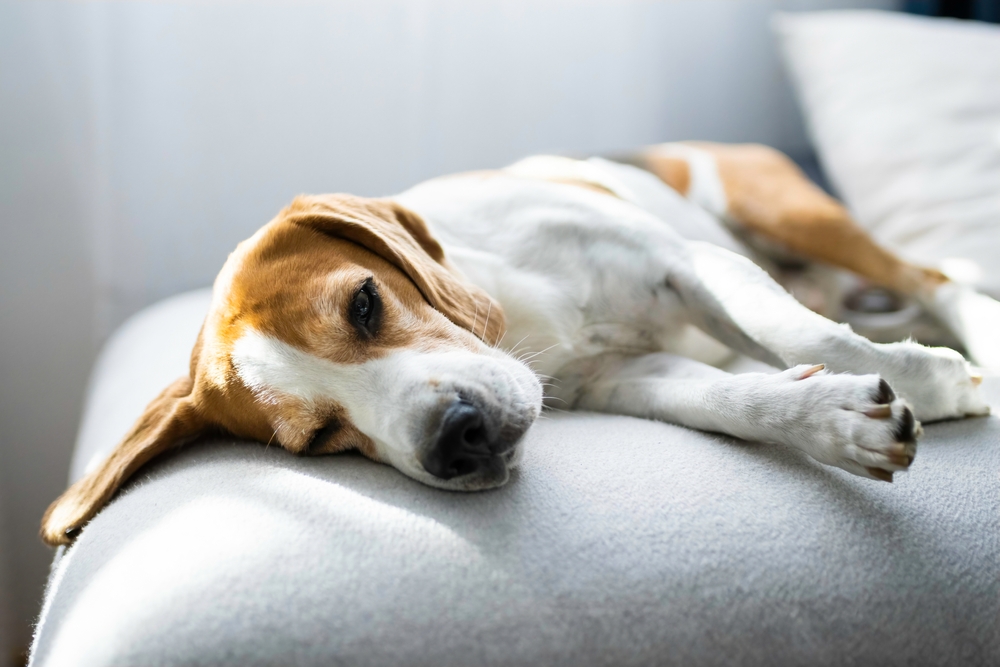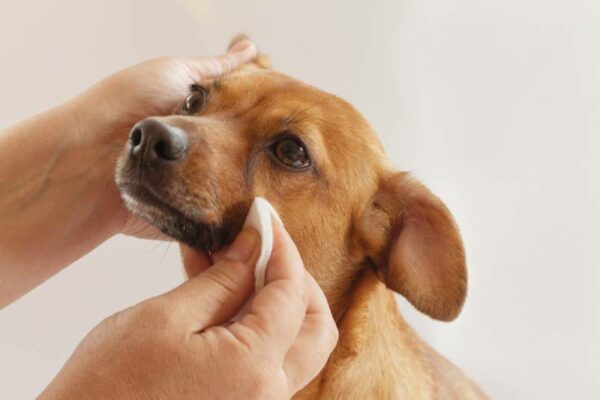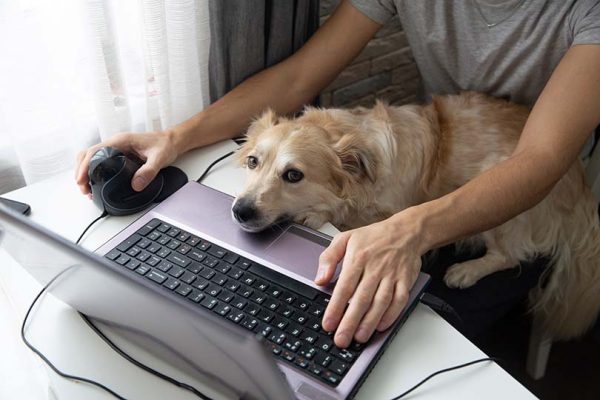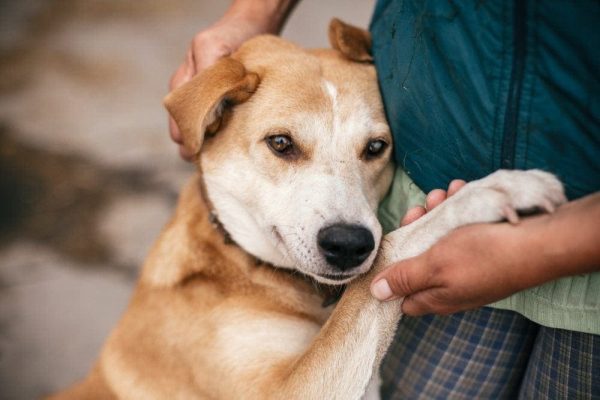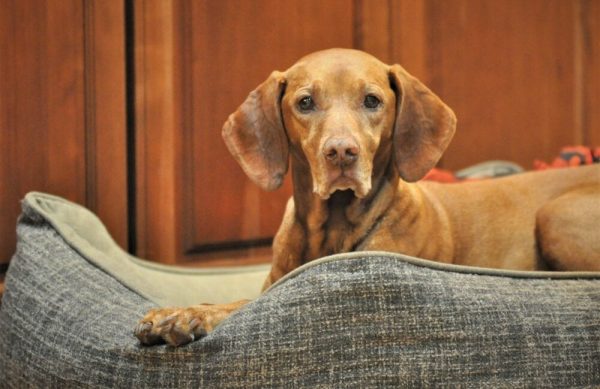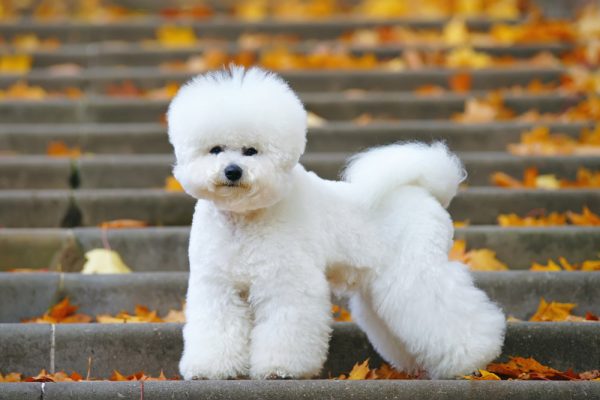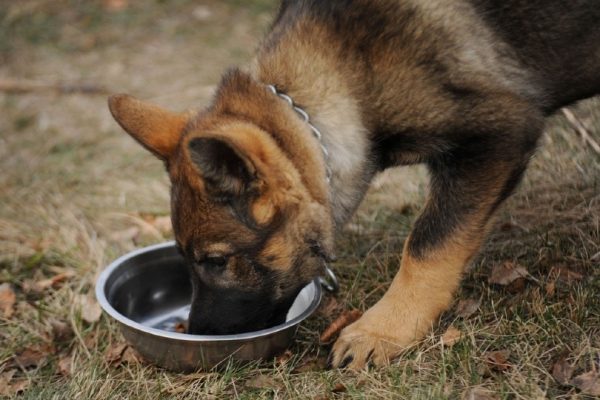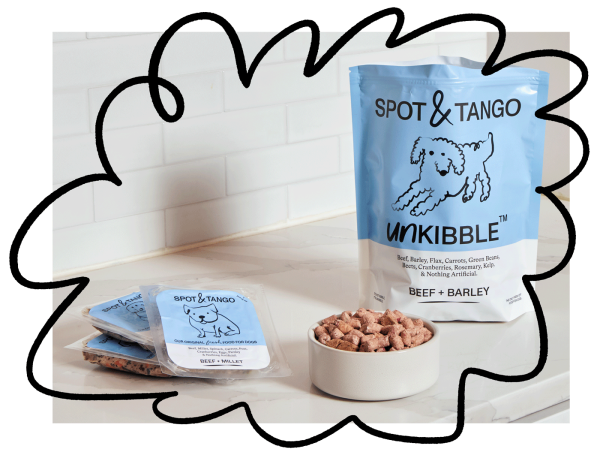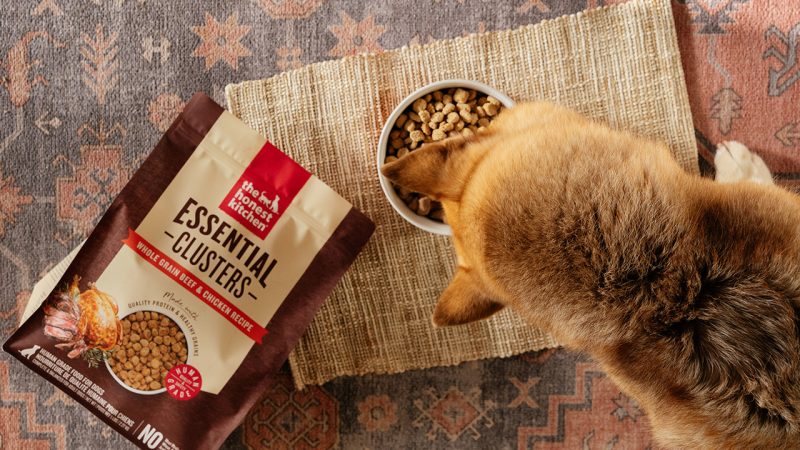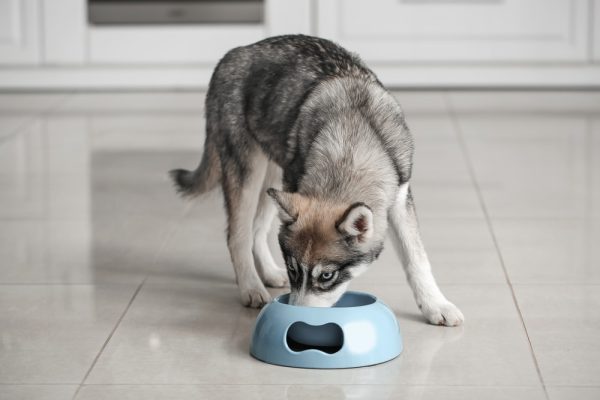In this article
View 6 More +You’ve had your dog for years and can count on one hand the number of times your pup has had an accident in the house. Now they’ve had several accidents of pooping in their sleep. What on earth is going on?
If your dog is leaking poop while sleeping, let’s look at some of the potential causes, including neurologic issues, aging, infections and more. It can certainly be frustrating to figure out, but your veterinarian can help you get to the root cause.

Defining Fecal Incontinence
Your dog is likely older if it has lost the ability to control its bowels, which we call fecal incontinence. That said, any dog of any age can be affected, especially if something like parvovirus is the underlying culprit.

Signs of Fecal Incontinence in Dogs
Your veterinarian will need to know if your dog has other signs than just passing stool in their sleep.
Some questions to consider include:
- Is it happening at other times, such as walking?
- Have you noticed diarrhea or vomiting?
- Is your dog weaker in their hind end?
- Is your pup scooting?
- Have you changed foods recently?

The 6 Possible Causes of Your Dog Pooping in Their Sleep
The anal sphincter helps control when your dog defecates, and it can be affected by certain conditions.
1. Neurologic Issues
There are a range of neurologic causes for fecal incontinence, including;
- Degenerative myelopathy
- Peripheral neuropathy
- Intervertebral disk disease (IVDD)
- Fibrocartilaginous embolism (FCE)
Trauma or tumors associated with the spinal cord can also impact the anal sphincter. Dogs that have been hit by a car should have their reflexes and anal tone tested.

2. Arthritis
Dogs of any age can develop arthritis, but it’s more common in older dogs. Arthritis can impact the spinal cord if it develops between vertebrae. It can also make it hard for dogs to posture to defecate if they can’t empty their bowels when out for a walk; they still could come out later when they’re relaxed.
Similarly to arthritis, muscle loss that comes with age can make it hard for your dog to position themselves to go to the bathroom. Senility is also a potential concern. Cognitive dysfunction manifests in different ways, including trouble with regular bodily eliminations. Your geriatric pup may go where they lay.

4. Rectal Trauma
Damage to the anal sphincter can cause dogs to develop fecal incontinence. Some of these dogs have had a severe anal gland abscess. Other dogs could have a perianal fistula.
5. Perianal Mass
A rectal mass, such as an anal gland tumor, can contribute to incontinence. Surgery to remove these masses could also damage the nerves that innervate the anal sphincter and lead to incontinence.
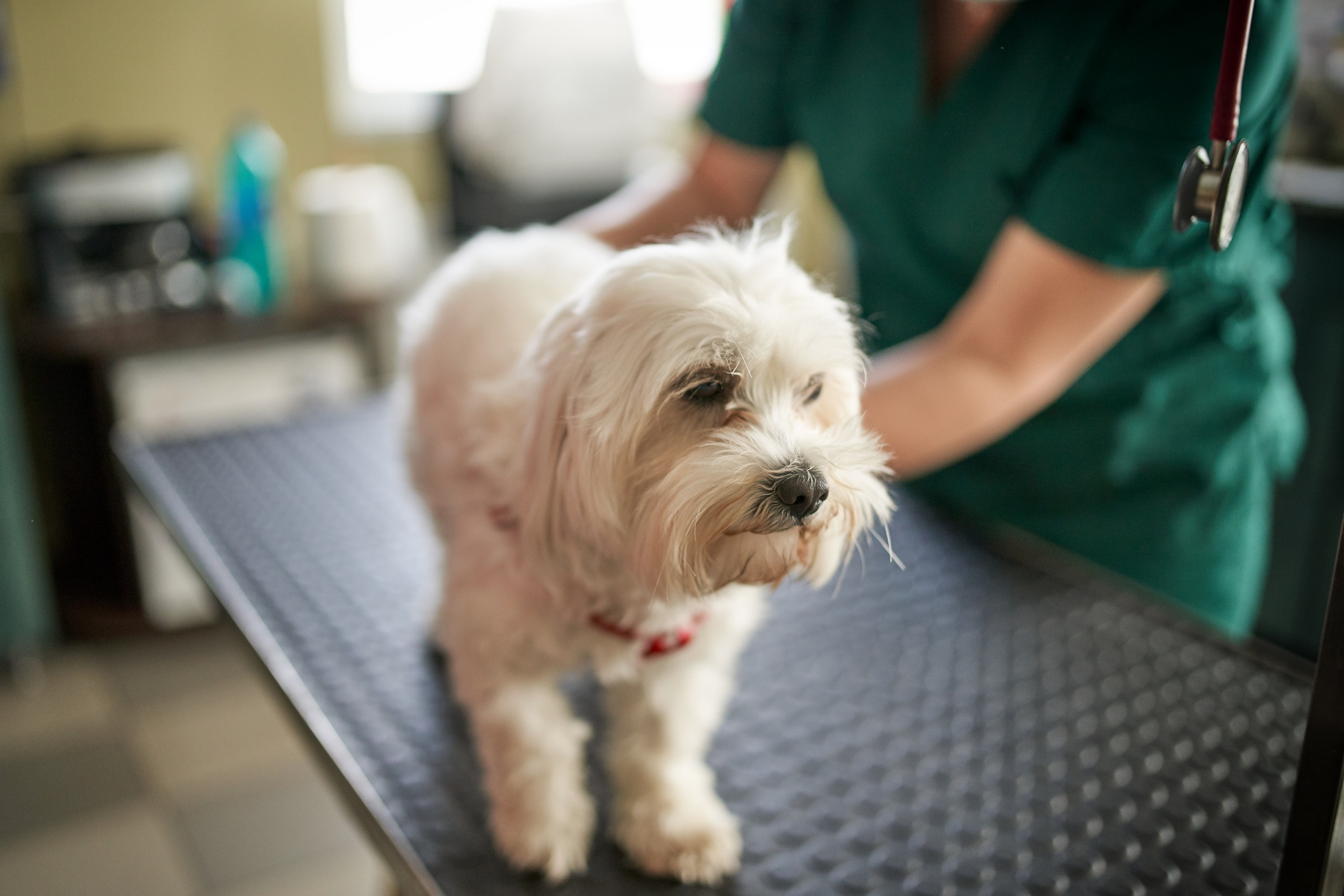
6. Infections
Some dogs develop diarrhea-causing infections, such as parvovirus, or bacterial infections like Salmonella. If the diarrhea is severe, your dog may be incontinent in their sleep or even walk to the back door.

Diagnosing Your Dog With Fecal Incontinence
Diagnosing incontinence in dogs just on a physical exam can be challenging. Your veterinarian will need to evaluate your pup from nose to tail while getting more information on how your dog has defecated in their sleep. The vet will likely perform a rectal exam on your dog, evaluating anal muscle tone, stool consistency, and even the anal glands.
You should bring a stool sample to the appointment for a parasite exam. Your veterinarian will likely suggest blood work and possible radiographs (X-rays) to look for arthritis changes.


Treating Your Dog’s Fecal Incontinence
Therapies
Your veterinarian may start treatments based on their examination findings. Diarrhea may need to be treated with probiotics and anti-diarrheal medicine like loperamide.
If your dog has arthritis that could be contributing to changes, your vet might start them on anti-inflammatories such as Rimadyl (carprofen), Galliprant (grapiprant), or Metacam (meloxicam).
If your dog has a rectal mass, they likely need surgery to remove it. Some also need radiation or chemotherapy to treat the tumor.
You’ll want to keep your dog clean and consider a diaper. If possible, you might want to contain your dog in an area of the house that’s easy to clean.
Prevention
Your veterinarian may recommend specific therapies to help your dog, such as:
- Laser therapy
- Hydrotherapy
- Chiropractic care
- Acupuncture
These can be especially helpful to decrease discomfort and strengthen muscles.
Consider a highly digestible diet with lower fiber. More fiber can mean your dog needs to defecate more. On the other hand, fiber can often help dogs eliminate better, so see what your vet recommends. They may put your dog on a hydrolyzed protein diet or a gastrointestinal diet.
If you need to speak with a vet but can't get to one, head over to PangoVet. It's our online service where you can talk to a vet online and get the advice you need for your pet — all at an affordable price!

Frequently Asked Questions
Is it normal for dogs to poop in their sleep?
If your dog is leaking poop while sleeping, it is not normal and it’s essential that you work with your veterinarian to identify and treat the underlying cause.
How do I stop my dog from pooping in their sleep?
Talk to your veterinarian to see if a different food might benefit your dog. Stop feeding your dog about two hours before bedtime, and take it on a long enough walk before bed to give it plenty of opportunities to defecate.

Conclusion
Fecal incontinence frustrates pet owners and can also make housebroken dogs uncomfortable. Work with your veterinarian to identify and treat the underlying cause. It may seem like something that cannot be stopped but there are ways that this situation can be resolved if you reach out to your veterinarian.
Featured Image Credit: Przemek Iciak, Shutterstock
